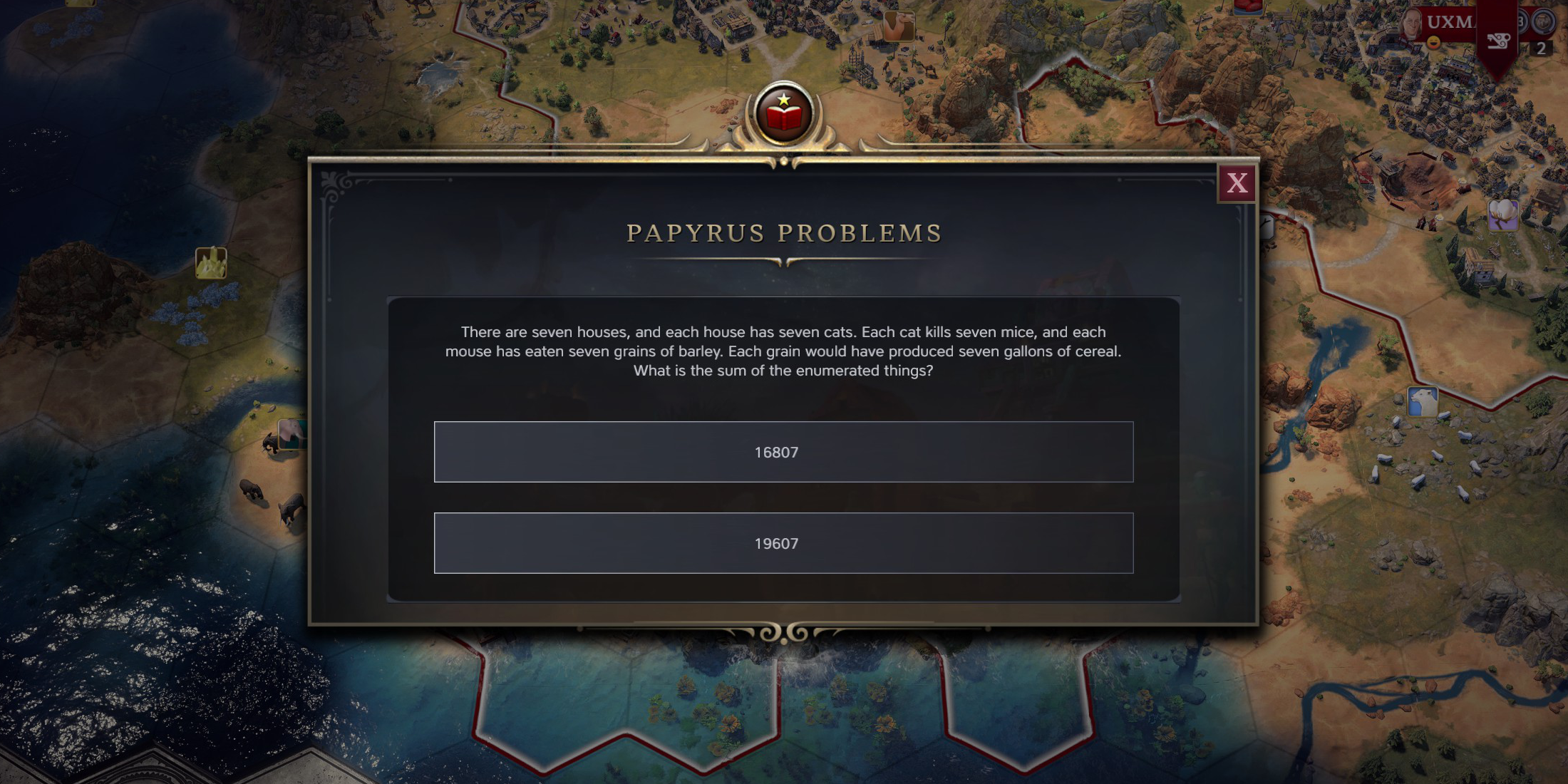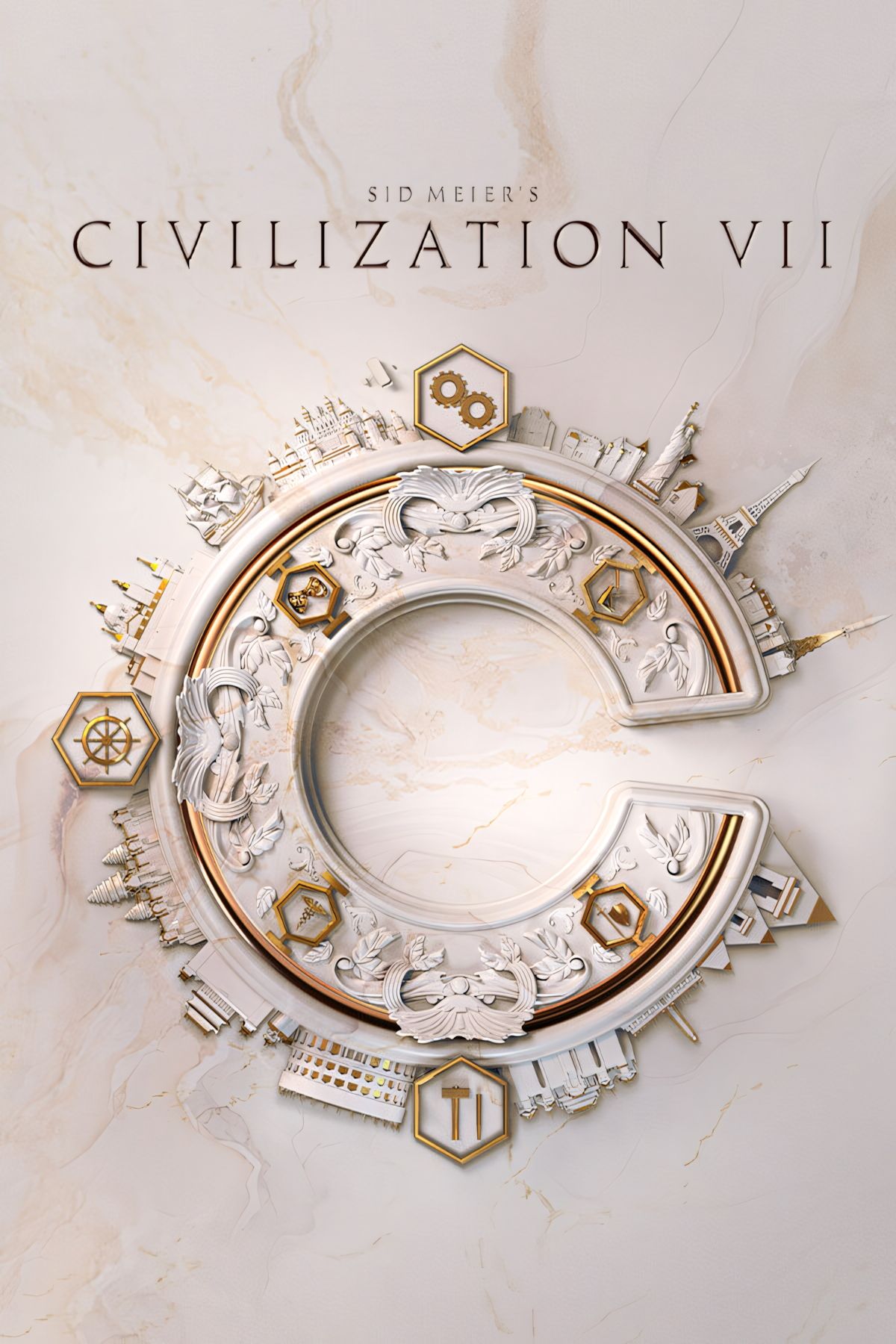Players following the Science Legacy Path may encounter a Narrative Event titled “The Papyrus Problem” in Civilization 7. This Narrative Event asks players to solve a mathematical problem, one whose origins are far earlier than you might think, and one whose answer is not as simple as it might seem.

Related
Civilization 7: How to Install Mods
To install mods, Civ 7 players simply need to extract their desired mod files directly into the Civ 7 mod folder.
To solve the Papyrus Problem, Civ 7 players must carefully choose an answer in the Narrative Event from two available options. This guide explains the reasoning behind the Papyrus Problem answer, and provides a little bit of a glimpse into the real-life history behind this unique riddle.
Origins Of The Civ 7 Papyrus Problem
In Civ 7, the Papyrus Problem event is a reference to a real-life mathematic problem commonly known as the Seven Houses Riddle. You might also recognize how similar it is to the “As I Was Going To St. Ives” nursery rhyme.
But its origins date back to ancient Egyptian mathematics, perhaps the reason the Papyrus Problem is in Civ 7. The Rhind Mathematical Papyrus, an ancient Egyptian scroll on display in the British Museum, presents a version of this problem in essentially the same terms as the now-more-well-known Seven Houses Riddle.
Civ 7 Papyrus Problem Answer
There are seven houses, and each house has seven cats. Each cat kills seven mice, and each mouse has eaten seven grains of barley. Each grain would have produced seven gallons of cereal.
What is the sum of the enumerated things?
There are two answers to the Papyrus Problem Civ 7 offers: 16807, or 19607. Depending on how you work out this problem, you will get one or the other number.
The Papyrus Problem solution in Civ 7 is not as simple as it might seem. One’s first instinct might be to simply multiply 7x7x7x7x7, but it’s important to pay attention to the wording of this riddle – it asks the “sum” of the “enumerated” things.
Instead of multiplying 7 to the power of 5 (7^5), you must find out the sum of each individual component of this riddle, then add them all up.
To figure out the Papyrus Problem answer on your own, calculate 7x7x7x7x7, then add 7^4, then add 7^3, then add 7^2, and finally add 7 to your result. Your totals should be 16,807+2,401+343+49+7.
Because it is included in this calculation, we can immediately ignore the first choice.
After adding together each individual enumerated amount, you should get 19607. With this, you have successfully completed one of mathematics’ oldest problems dating back to ancient Egypt – and when you successfully solve the Civ 7 Papyrus Problem, you’ll be rewarded with a nifty +100 boost to Science.













Leave a Reply